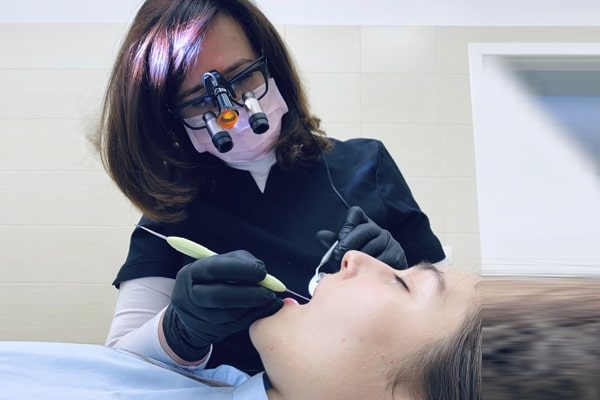Ectopic Pregnancy | Symptoms, Causes, Prevention and Treatments
The definition of Ectopic itself makes the term more coherent, Ectopic means in an abnormal place or position. Likewise, Ectopic Pregnancy or Extrauterine Pregnancy is a condition in which the fertilized egg attaches itself in other places than the (Womb)uterus. The most affected people ranges from age 19-40, there are fewer than 200,000 cases of Ectopic Pregnancy in the U.S.
In normal pregnancies, the fertilized egg travels through the fallopian tube and develops inside the uterus. Ectopic Pregnancy is caused when the fertilized egg doesn’t attach to the uterus instead grows in the fallopian tube which cannot hold a growing Embryo.
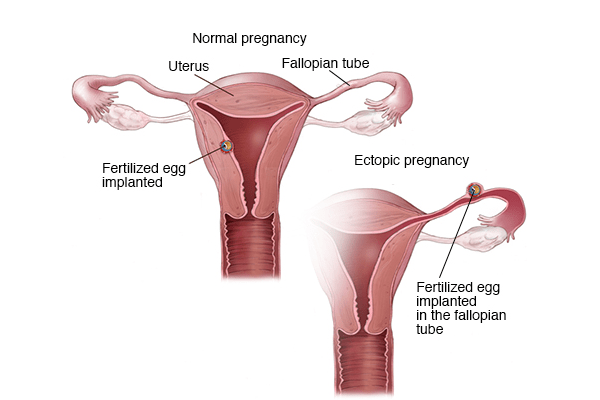
Fertilizing of egg in Ectopic Pregnancy and Normal Pregnancy.
Image Source: Mayo Clinic.
The Fallopian tubes are the common location for an ectopic pregnancy so it’s often also known as tubal pregnancies. Ectopic pregnancies occur mainly in abdominal cavity, ovary or neck of the uterus(cervix).
For a normal pregnancy to happen the ovary releases an egg into the fallopian tube where it remains for about 24 hours. To be fertilized the egg needs to come in contact with a sperm and remain in the fallopian tube for 3 to 4 days after starting its move to the uterus. The fertilized egg then attaches to the lining of the uterus and continues to grow until a baby is born.
In cases of Ectopic pregnancies, the fertilized egg stays in the fallopian tube or someplace else in the abdomen instead of moving and staying in the uterus, these cases are termed as Ectopic Pregnancies.
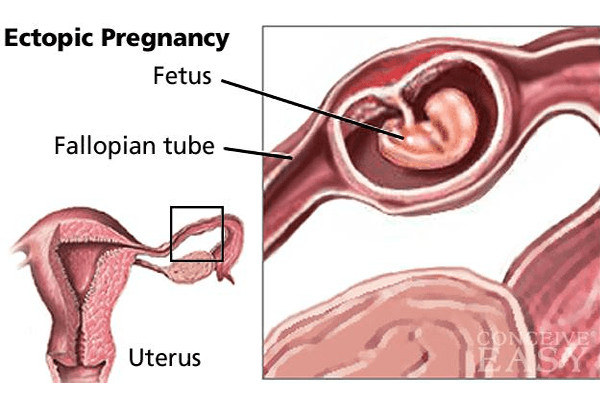
Fertilized egg implanted in the fallopian tube.
Image Source: Natural Health News
In these cases, the pregnancy can no longer continue and requires immediate emergency treatment. The cases of Ectopic pregnancies occur in 1 out of 50 pregnancies.
Symptoms of Ectopic Pregnancy

Symptoms of Ectopic Pregnancy.
Image Source: Pure Traditions
Ectopic Pregnancies happens mostly within the first weeks of pregnancy, a woman might even be unaware that she’s pregnant and may not have signs of a problem. In varied cases, the early signs and symptoms can also be the same of any normal pregnancies such as missed periods, breast tenderness and nausea.
Pregnant women may experience lower abdomen pain and light vaginal bleeding as the first symptoms of Ectopic Pregnancy. Other symptoms of Ectopic Pregnancy includes:
- Fluctuation of Sharp pains varying in intensity (affected regions pelvis, abdomen, shoulder, neck due blood from ruptured ectopic pregnancy collecting in the diaphragm).
- Unusual Vaginal Bleeding or spotting.
- Severe pain occurring on one side of the abdomen.
- Dizziness, fainting or lightheadedness
- Pain in lower back or shoulders
- Pains in the pelvic area starting mildly and becoming sharp
- Bladder or bowel problems
Not all women experience these symptoms, and some experiencing symptoms are also similar to gastroenteritis and miscarriage. If someone’s instincts are sensing that something is not right, it’s OK to trust them and seek proper help.
If experiencing these Ectopic Pregnancy symptoms with or without shoulder pains, seek urgent medical attention via ambulance.
Causes of Ectopic Pregnancy
One may never know why they had an ectopic pregnancy and the cause isn’t always clear. The main cause can be a damaged fallopian tube that prevents the fertilized egg to get into the uterus and leaving it to implant someplace else. These are risk factors and causes of Ectopic Pregnancy in following cases:
- Previous Ectopic Pregnancy: If one has a record of previous Ectopic pregnancy, it is likely to get another one.
- Age: Ectopic pregnancy occurs to any age of women who is ovulating and sexually active with their partner. It is likely that Ectopic Pregnancy occurs in women aged 35-44.
- Previous Surgeries: Previous sterilization or reconstructive surgeries on the Fallopian tubes can lead to scarring and change in shape which might lead to abnormalities and lead to ectopic pregnancy.
- Oddly shaped Fallopian Tubes: ectopic pregnancy is likely possible if one has oddly shaped or damaged tubes.
- Infections: Pelvic infections (Pelvis Inflammatory Disease) is a risk factor for ectopic pregnancy. Pelvis infections are normally caused by a sexually-transmitted organism; Chlamydia a bacteria causing gonorrhea. Whereas, non-sexually transmitted bacterias can also cause pelvic infection and increase the risk of ectopic pregnancy.
- IUD use: Relatively half pregnancies in women using Intrauterine devices (IUDs) will be subsequently located outside of the uterus. The total number of women becoming pregnant in aid of IUD is very low.
- Cigarette smoking: Smoking cigarette around the time of conception increases the risk of ectopic pregnancy. The risk of ectopic pregnancy is observed to be dependent on the dose of consumption. The more consumption the higher the risk.
- Inflammation or infection of fallopian tubes leading to block the fertilized eggs.
Ectopic pregnancy Test and Diagnosis
Obstetrician-gynecologists(OB-GYNs) specializes in treating ectopic pregnancy. Whereas, emergency medicine specialists and surgeons treat the ruptured ectopic pregnancies.
The physician will also use an ultrasound to detect whether the uterus has a developing fetus. In doubt of ectopic pregnancy, a blood hormone pregnancy test and pelvic ultrasound are done to aid the diagnosis. Transvaginal ultrasound is considered as the vital test to examine an ectopic pregnancy and undergo Ectopic pregnancy test and diagnosis.
In Ectopic pregnancy Test, an ultrasound tube is inserted into the vagina and the images of pelvis regions are made visible on a monitor. Transvaginal ultrasound reveals the gestational pouch in normal pregnancy of ectopic pregnancy but the findings are often not decisive.
Pregnancy tests like human chorionic gonadotrophin (beta HCG) blood levels are also used in the diagnosis of ectopic pregnancy. The Beta HCG levels are normally rising during the pregnancy but an abnormal rise of this hormone provides a clue to identify Ectopic Pregnancy.
In some cases, Laparoscopy is also done to confirm a diagnosis of ectopic pregnancy. Laparoscopy is done by inserting viewing instruments through a small cut in the abdominal wall. Then the structures in abdomen and pelvis are investigated to reveal the site of ectopic pregnancy.
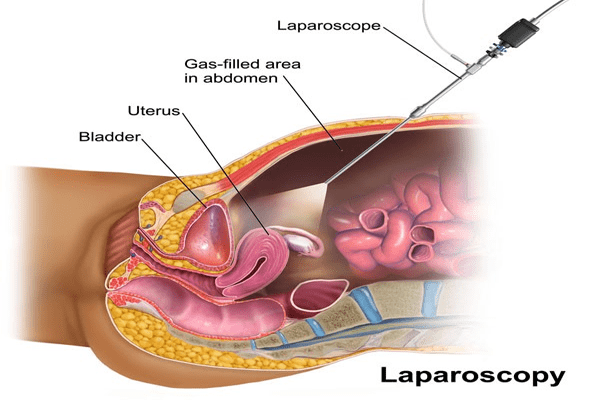
Laparoscopy is done to confirm the diagnosis of ectopic pregnancyImage Source: Pinterest
In addition, a physician also may undergo Culdocentesis, a procedure involving inserting a needle into the top space of the Vagina, in front of the rectum and behind the uterus. The blood present in the area indicates bleeding from a ruptured fallopian tube.
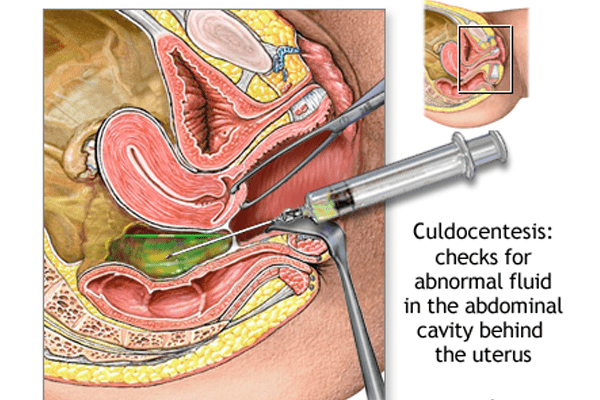
Culdocentesis checks for abnormal fluids present in abdominal cavity behind the uterus.
Image Source: UF Health
Treatment of Ectopic Pregnancy
Ectopic Pregnancies are not safe for the mothers as well the embryo as it won’t be able to develop normally. For the sake of mother’s health and long-term fertility, the embryo should be removed as soon as possible. The treatment varies depending on cases of location and development of ectopic pregnancy.
1. Medication: In order to prevent the ectopic mass from bursting, doctors prescribe several medications. Common medication is a methotrexate(Rheumatrex). A drug that prevents the growth of rapidly dividing cells of ectopic mass.
Blood tests are encouraged to ensure the drug is working effectively. The medication will cause symptoms similar to miscarriage which is to be considered effective. Unable to get pregnant for significant months is a drawback of the medication.
2. Surgery: Many physicists suggests removal of the embryo and repairing of any internal damages. The surgery is done by a procedure of Laparotomy, the surgeon then removes the embryo and repairs any damages done to the fallopian tube.
3. Home Care: Doctors will provide a set of instructions to follow after the surgery. Proper home care should be provided to keep the cuts clean and dry and heal likewise. One must check for the signs of infection after Ectopic Pregnancy surgery which are:
- Bleeding, excessive bleeding
- Foul-smelling drainage from the site
- Swelling and redness
Light bleeding from the vagina and small clots of blood can be considered normal after the surgery which can occur six weeks after the surgery. Other self-care measures to be considered include:
- Don’t lift heavy things more than 10 pounds
- Constipation can be experienced so drinking plenty of fluids is recommended
- Pelvic rests are very vital in the period after surgery, avoid sexual intercourse, tampon use and douching
- As much as rest is recommended in the first week after surgery.
Prevention of Ectopic Pregnancy
Since Ectopic Pregnancy is not predictable and the prevention is also not possible in every case. One can reduce a significant amount of risk through good reproductive health maintenance. In over 50% of women with Ectopic Pregnancy have no identifiable risk symptoms.
A person can reduce the risks by using contraceptives in intercourse and limit number of sexual partners. This reduces the potential risks of STD’s which can cause PID, a condition causing inflammation in fallopian tubes.

Quit smoking as a preventive measure to prevent Ectopic Pregnancy.
Image Source: Wiki how
Maintain a doctor visit routine and regular check-ups, gynecological exams. STD screenings are also considered beneficial to be wary of potential risks. Strategies can be built up to maintain personal health and quit smoking to avoid risks of Ectopic Pregnancy.
Recent News
-

Duane Chapman Is Now Engaged To Girlfriend Francie Frane, Had Lost Wife 10 Months Earlier
-

Katherine Schwarzenegger Pregnant With Her First Child With Husband Chris Pratt
-

Chris Cuomo's Son Mario Tested Postive For Coronavirus
-

Kodak Black And NBA YoungBoy, Dissing One Another Via Social Media
-

Maeve Kennedy McKean, Robert F. Kennedy's Granddaughter, is Missing Along With Her Son
Entertainment
-

The Evolution of Entertainment: Online Casting Calls Redefining the Industry
-

Mamoudou Athie's Must-Watch Performances in the Movies and TV Series
-

Try These Unique Forms of Entertainment When You've Exhausted All Options
-

7 Best Movies on Netflix This Week
-

Campus Grooves: Exploring Music Festivals in American Colleges
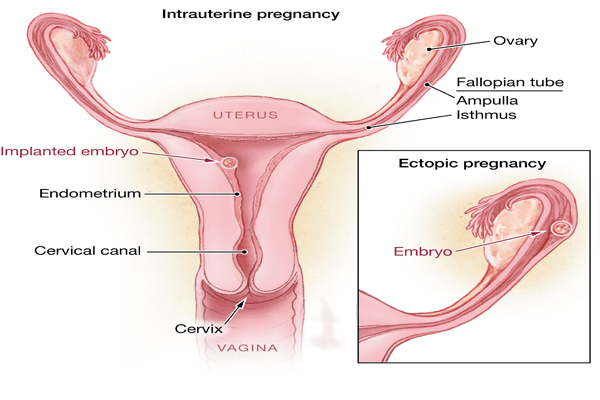 Ectopic Pregnancy
Ectopic Pregnancy

